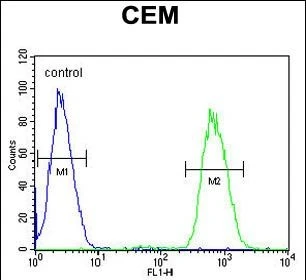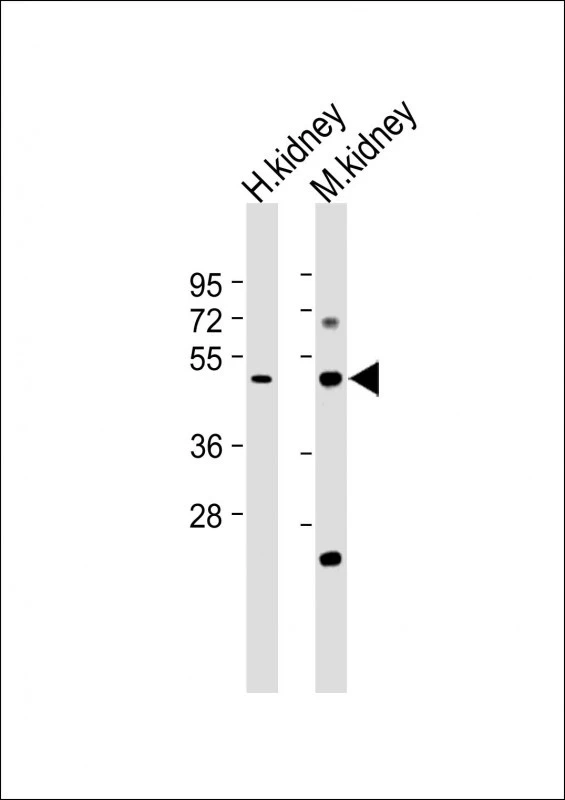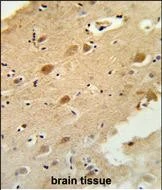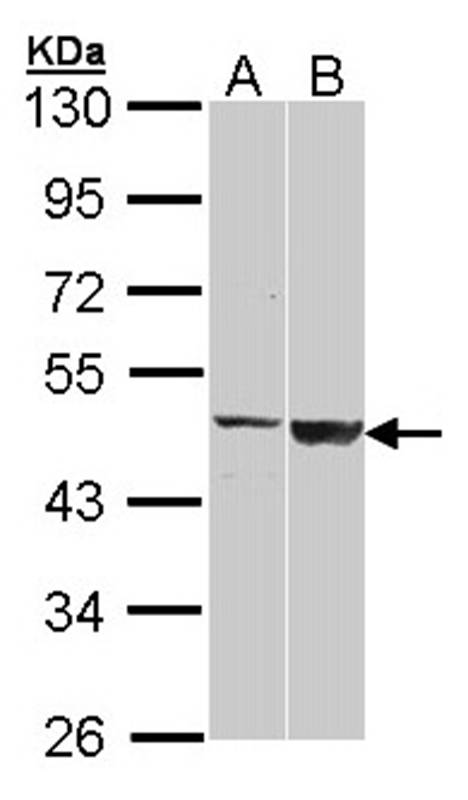
WB analysis of mouse cerebellum tissue lysate using GTX04952 GAL3ST1 antibody. Loading : 35μg
GAL3ST1 antibody
GTX04952
ApplicationsFlow Cytometry, Western Blot, ImmunoHistoChemistry, ImmunoHistoChemistry Paraffin
Product group Antibodies
ReactivityHuman, Mouse
TargetGAL3ST1
Overview
- SupplierGeneTex
- Product NameGAL3ST1 antibody
- Delivery Days Customer7
- Application Supplier NoteWB: 1:2000. IHC-P: 1:50-1:100. FCM: 1:10-1:50. *Optimal dilutions/concentrations should be determined by the researcher.Not tested in other applications.
- ApplicationsFlow Cytometry, Western Blot, ImmunoHistoChemistry, ImmunoHistoChemistry Paraffin
- CertificationResearch Use Only
- ClonalityPolyclonal
- ConjugateUnconjugated
- Gene ID9514
- Target nameGAL3ST1
- Target descriptiongalactose-3-O-sulfotransferase 1
- Target synonymsCST, galactosylceramide sulfotransferase, 3'-phosphoadenosine-5'-phosphosulfate:GalCer sulfotransferase, cerebroside (3'-phosphoadenylylsulfate:galactosylceramide 3') sulfotransferase
- HostRabbit
- IsotypeIgG
- Protein IDQ99999
- Protein NameGalactosylceramide sulfotransferase
- Scientific DescriptionSulfonation, an important step in the metabolism of many drugs, xenobiotics, hormones, and neurotransmitters, is catalyzed by sulfotransferases. This gene encodes galactosylceramide sulfotransferase, which catalyzes the sulfation of membrane glycolipids including the final step in the synthesis of sulfatide, a major lipid component of the myelin sheath. This gene exhibits elevated expression in ovarian epithelial carcinoma and the encoded enzyme exhibits elevated activity in renal cell carcinoma. Mutations in this gene may be associated with reduced insulin resistance. Alternative splicing results in multiple transcript variants. [provided by RefSeq, Dec 2015]
- ReactivityHuman, Mouse
- Storage Instruction-20°C or -80°C,2°C to 8°C
- UNSPSC41116161






